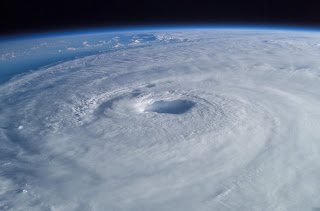 Sometimes in our lives we embark on journeys that are incredible. Sometimes they completely terrify us. I recently began a journey that does both to me. I began a writing organization on my campus at Weber State University. You might ask why would I do that? It mostly has to do with the fact that I recognize that our teachers shouldn't be solely responsible for helping us to develop our skills as writers. The following is the contents of a small booklet I made for a class I taught on Creativity today. It is my hope that the ideas expressed here will help other writers to learn craft or discover resources that can help them become better writers. Enjoy!
Sometimes in our lives we embark on journeys that are incredible. Sometimes they completely terrify us. I recently began a journey that does both to me. I began a writing organization on my campus at Weber State University. You might ask why would I do that? It mostly has to do with the fact that I recognize that our teachers shouldn't be solely responsible for helping us to develop our skills as writers. The following is the contents of a small booklet I made for a class I taught on Creativity today. It is my hope that the ideas expressed here will help other writers to learn craft or discover resources that can help them become better writers. Enjoy!
Unblocking Creativity
What is Creativity?
 According to the Oxford Dictionary creativity means: relating to or involving the imagination or original ideas, especially in the production of an artistic work. Hopefully you asked after reading that: So what? I know I did. Creativity means something different to each one of us. This personal meaning is what drives us to create and what one of the goals of Writers Ink will be to teach you to protect. But that is a different lesson.
According to the Oxford Dictionary creativity means: relating to or involving the imagination or original ideas, especially in the production of an artistic work. Hopefully you asked after reading that: So what? I know I did. Creativity means something different to each one of us. This personal meaning is what drives us to create and what one of the goals of Writers Ink will be to teach you to protect. But that is a different lesson.
What gets in the way of our creativity?
 Make a list. Really make a list. Some of the things you will see on mine is: Fear of rejection keeps me from creating; I believe that being creative is a luxury I can’t afford right now; and I’m so tired of this project I’m working on that I’m done with it. I don’t know if these sound familiar to you, but I know that there tends to be a pattern with most of our reasons for not creating. That pattern is our self. We are the force that gets in the way of our creativity. So in order to embrace our creativity & develop creative confidence we have to stop getting in our own way. I’m not saying that our reasons for not creating aren’t valid, but it is our responsibility to learn how to work around them.
Make a list. Really make a list. Some of the things you will see on mine is: Fear of rejection keeps me from creating; I believe that being creative is a luxury I can’t afford right now; and I’m so tired of this project I’m working on that I’m done with it. I don’t know if these sound familiar to you, but I know that there tends to be a pattern with most of our reasons for not creating. That pattern is our self. We are the force that gets in the way of our creativity. So in order to embrace our creativity & develop creative confidence we have to stop getting in our own way. I’m not saying that our reasons for not creating aren’t valid, but it is our responsibility to learn how to work around them.
Tools of our Trade
As writers we must recognize that we are developing skills to enable us to build cohesive arguments, create resonating phrases, and open minds. Among the first skill we must develop is how to create ideas.
Again, make a list. Find out what you already use. Following are some of my tools:
1. A Commonplace book: A place to hold all my good and bad ideas
 2. Research on my subject matter
2. Research on my subject matter3. My memories, your memories, fictional memories, & dreams
4. Brainstorming (Alone and with trusted friends)
5. Quotations, Art, Driving, and Showers (Places of inspiration)
6. Writing Prompts or Focused Practice
Your list of tools may be longer or look entirely different than this. And that’s okay. Now go share your list with another writer and increase their tool box.
Expressing Creativity
Of course you came to this to learn how to keep your creative flow. I like to think of creativity as a well. A well must be nurtured and taken care of if it is going to give us water throughout our lives. One of the dangers of allowing ourselves to get in the way of our creativity is that we can dry up our well. Thankfully if we tend to ourselves again we can refill our creative wells. Following are four ways we can help keep our wells full of creativity.
 1. Pay attention to and explore the world around you.
Have you ever seen a picture or quote on Facebook that you thought was awesome? You see things like that when you are paying attention. Take the time to collect quotes and pictures or anything else that inspires you. These put water into the creativity well.
1. Pay attention to and explore the world around you.
Have you ever seen a picture or quote on Facebook that you thought was awesome? You see things like that when you are paying attention. Take the time to collect quotes and pictures or anything else that inspires you. These put water into the creativity well.
2. Open up, be vulnerable, recognize emotion as a source of energy. This is hard. Sometimes we experience feelings that we don’t want to. We can even create experiences of emotion using music, smells, and watching memorable films. When we as artists are authentic about what we feel it can fill our well.
 3. Creativity isn’t an event it is a lifestyle.
I have found that the muse only regularly visits the consistent. Remember to keep writing. This is most difficult when you feel blocked. That’s okay keep writing. Having more than one creative project at a time helps with this process. The waters of creativity flow best when we live in such a way that we consistently are working on creating new projects.
3. Creativity isn’t an event it is a lifestyle.
I have found that the muse only regularly visits the consistent. Remember to keep writing. This is most difficult when you feel blocked. That’s okay keep writing. Having more than one creative project at a time helps with this process. The waters of creativity flow best when we live in such a way that we consistently are working on creating new projects.
4. We must embrace loss and develop creative confidence. Of all the steps this is the most difficult. Artists must endure rejection and loss throughout their lives. Does it hurt? Yes. In my opinion it always should, because we have become numb to inspiration when it ceases to hurt. Embrace the pain. Develop your skills so well that you can have confidence even in rejection. This will help you be resilient enough to keep putting your work out there to make the world a better place.
Creativity as a Journey
Now that we are finished with this class you know everything there is to know about creativity and you are ready to create worlds without end, right? Perhaps. Hopefully this has simply whetted your appetite with some tools to develop your creativity and habits to help you develop the lifestyle. Below you can find resources to help you as you continue on the journey to discover greater creativity. Including the resources I used to create this booklet. May the muse visit you often.
Resources for Creativity
The Artists Way written by Julia Cameron
The Creative Habit by Twyla Tharp
Kick-Ass Creativity by Mary Beth Maziarz
The 3 A.M. Epiphany by Brian Kiteley
The Gift by Lewis Hyde
Drawing out the Dragons by James A. Owen
David Kelley’s TED talk: How to build your creative confidence
Julie Burstein’s TED talk: Four lessons in creativity

































